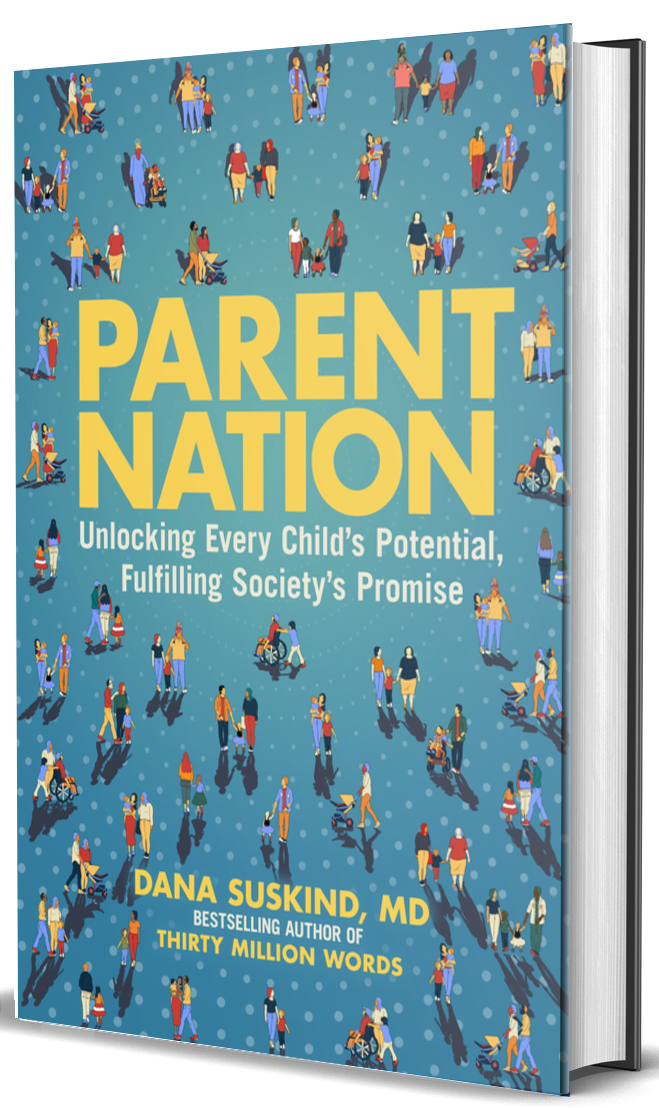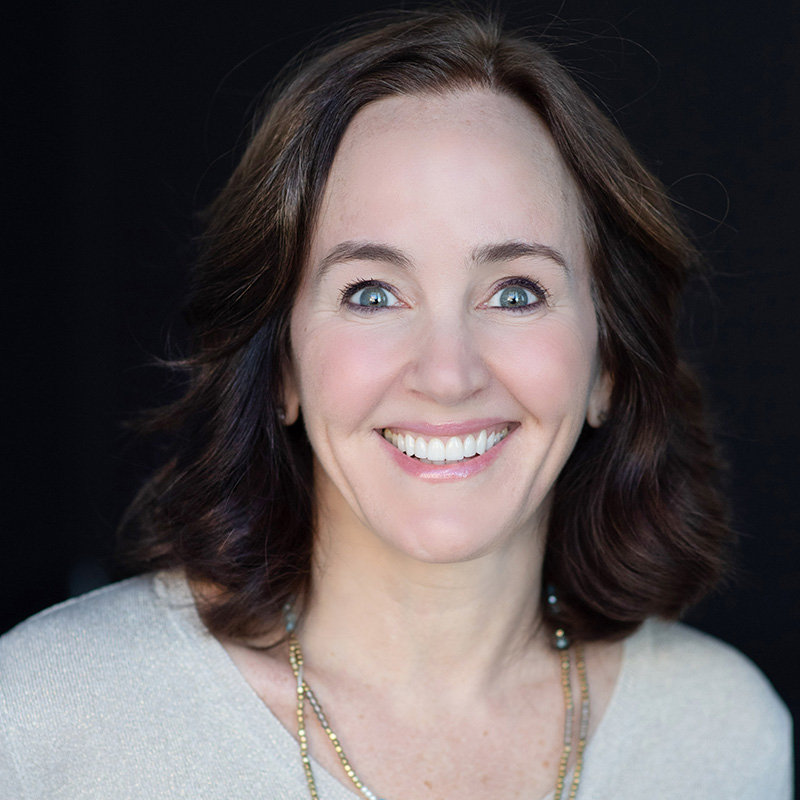Dana L. Suskind, MD, with Lydia Denworth
Parent Nation: Unlocking Every Child’s Potential, Fulfilling Society’s Promise
NY: Dutton, 320pp.
 Dana L. Suskind, surgeon and “self-trained social scientist,” balances an incredible amount of empathy and urgency in her second book, Parent Nation. Building on the science presented in Thirty Million Words (2015), this compelling volume highlights recent research, real-world examples and historical events to illustrate how rearing children plays out today.
Dana L. Suskind, surgeon and “self-trained social scientist,” balances an incredible amount of empathy and urgency in her second book, Parent Nation. Building on the science presented in Thirty Million Words (2015), this compelling volume highlights recent research, real-world examples and historical events to illustrate how rearing children plays out today.
“There is an alarming disconnect between what we know about what children’s brains need and what we have actually done to develop those brains,” writes Suskind, founder, and co-director at the TMW Center for Early Learning + Public Health at the University of Chicago. The book empowers caregivers, parents and policymakers to act as “brain architects” early on for the country’s poorest and most vulnerable group: children. “In the first thousand days of a child’s life, over 85% of the brain’s total adult volume is built, which is why what happens during this time is so critical.”
TMW focuses on serve-and-return interactions, described as the 3Ts (tune in, talk more and take turns) to promote early language skills. “Out of all the cognitive skills we can help young children develop early on, there’s one that stands out as a particularly strong indicator of what’s to come: language.” Parent Nation further urges societal shifts that would better support parents in a role that matters to all of us.
“Our society robs too many families of the opportunity to provide healthy environments,” Suskind argues, highlighting homelessness, poverty, illness and other afflictions that jeopardize healthy brain development. “Unlike malnutrition, which is easily observable in a tiny, frail infant, poverty’s impact on the brain is hidden behind the chubby cheeks and soft skin of an adorable baby, only manifesting many years later.”
Suskind dissects the prevalent and cyclical challenges of parenting in the United States. In 2018, according to the Children’s Defense Fund, Head Start served only half of eligible three- and four-year-olds, and the Early Start program, a later addition for infants and toddlers, reached a startlingly low 8% of eligible babies. According to the Centers for Disease Control and Prevention, 60% of American adults experience at least one adverse childhood experience (ACE). Childhood adversity burrows into the brain. If left unaddressed, it can disrupt the stability of the brain circuitry and thus the stability of the child’s future. Further, if mothers experience stress while pregnant, that stress can affect which genes are expressed in their children. In essence, ACEs can change genetic programming. The more stressed the parents, the more likely young children are to have mental health issues such as anxiety and depression.
Parents require support from employers, communities and policymakers as well as health and child care providers. “The larger realities of a family’s circumstances—their work constraints, economic stresses and mental health as well as the injustices and bad luck they are subject to—all matter as much as the 3Ts for healthy brain development,” Suskind explains.
Vivid vignettes of parents and families illustrate all-too-familiar circumstances of lacking the supports to raise their children into happy, healthy adults capable of reaching their full potential. Suskind maintains, “You need a plan, and you need an appropriate, safe environment, one that provides backup as required.” Many parents lack an informed plan, let alone any reliable backup.

Suskind writes about Randy, a dad and TMW program participant who struggled to find stable work offering a livable wage with benefits, “Parents like Randy want nothing more than to do the work to help their children succeed. But without time and bandwidth and money, it’s as if Randy was trying to ferry his son and daughter through childhood in a leaky rowboat.”
When Suskind and her husband Don (who later drowned while trying to rescue two boys on Lake Michigan) became parents in 1999, they knew nothing about healthy brain development. Even with the explosion of neuroscientific knowledge about building children’s language skills during that era, parenting books rarely linked those ideas directly to foundational brain development. “They buried the lede by not pointing out just how much the conversation between parents and children contributed to wiring up kids’ neural circuits,” Suskind laments. Today, we know so much more. However, the current system fails to connect the dots. “The result is a country full of anxious parents and a frenetic parenting industry rife with misinformation and conflicting advice.”
Suskind posits health care as the missing link in the educational continuum, building a bridge from the first day of life to the first day of formal schooling. “Knowing more,” she writes, “affects how parents behave with their children and changing parent behavior changes children’s outcomes.” Suskind imagines a future where parents receive explicit information about how the brain develops or what tools they can use to encourage and enhance it at every opportunity, from the first prenatal appointment to each pediatric visit. With holistic health care at the hub, this future also includes looking beyond symptoms to the root causes of good health and ill health—including the social, economic and environmental factors that influence child development.
Parenting is not an isolated experience. “It is time to recognize that the fates of parents and children are bound up in the fate of societies, of nations,” Suskind argues. According to research at Stanford University, in countries with family-friendly policies such as universal child care or paid family leave, there are smaller language gaps between rich and poor children than in the United States. In those countries where family-friendly policies boosted parents’ happiness, the policies did not reduce the happiness of non-parents. “The policies of the country we live in,” she asserts, “weave their way into our lives and can have immediate and far-reaching implications.”
Parent Nation provides countless examples of programs and resources that will help any parent on their journey. Along with these examples, the book includes a discussion and action guide so that people can do this work in a community with others seeking change.
Suskind reminds readers of what unites us in this human experience and elucidates the benefits of equipping those rearing children with the resources they need to thrive. She shows us that the most meaningful difference we can make in the life of children is ensuring that their families have safe places to live and that everyone’s physical and psychological needs are met. “Each family shoulders unique challenges, experiences and strengths,” she writes, “but nearly all mothers and fathers know sleepless nights and overpowering love.”

Mark Swartz
Mark Swartz writes about efforts to improve early care and education as well as developments in the U.S. care economy. He lives in Maryland.



